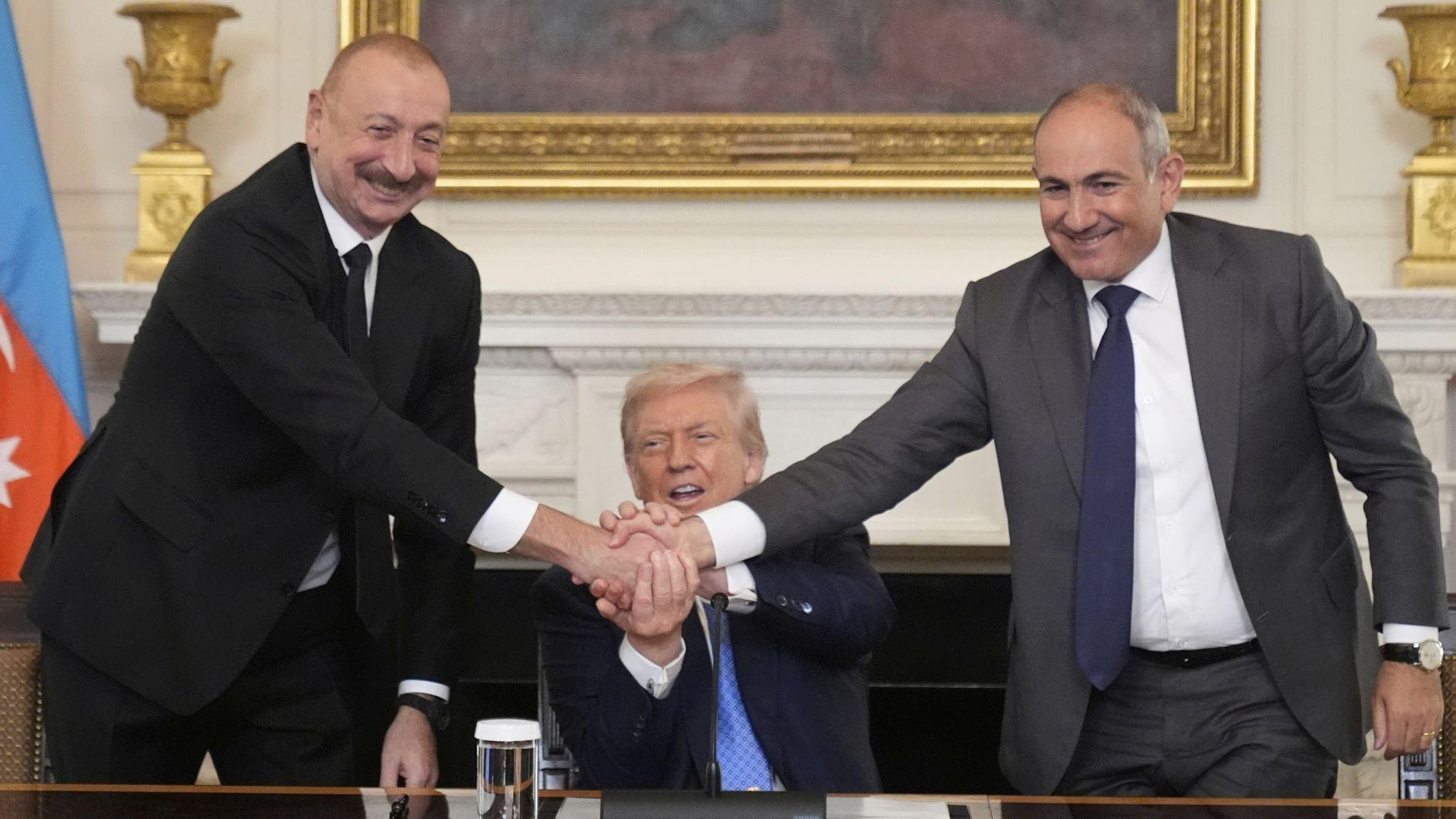
The signing of a U.S.-brokered peace "roadmap" between Armenia and Azerbaijan brings the decades-old conflict in the South Caucasus one step closer to resolution, while the agreement on a key corridor is expected to open the door to a new era— both economically and politically — in the region.
U.S. President Donald Trump on Aug. 8 hosted Armenian Prime Minister Nikol Pashinyan and Azerbaijani President İlham Aliyev were in Washington.
"Armenia and Azerbaijan are committing to stop all fighting forever, open up commerce, travel and diplomatic relations and respect each other's sovereignty and territorial integrity," Trump said.
Trump also said he was lifting restrictions on military cooperation with Azerbaijan.
The two countries agreed on the text of a comprehensive peace deal in March, but Azerbaijan has since outlined a host of demands, including amendments to Armenia's constitution to drop territorial claims for Karabakh, before signing the document.
Nagorno-Karabakh has been at the heart of the Armenia-Azerbaijan conflict. Although internationally recognized as part of Azerbaijan, the mountainous region was controlled for decades by ethnic Armenian forces backed by Armenia. Two wars — in the early 1990s and again in 2020 — left tens of thousands dead and displaced. In 2023, Azerbaijan regained control of most of the territory in a swift offensive.
While the Aug. 8 agreement does not constitute a formal peace treaty, it represents a significant diplomatic step toward normalization of relations.
Among the agreement's provisions is the creation of a new transit corridor, dubbed the “Trump Route for International Peace and Prosperity,” highlighting a changing geopolitical landscape amid declining Russian influence in the South Caucasus.
White House spokeswoman Anna Kelly, in a briefing with reporters on Friday, said the two countries would sign a "joint declaration" establishing a transit corridor between Azerbaijan and its exclave of Nakhchivan, a longstanding demand of Baku.
The United States will have development rights for the corridor, dubbed the "Trump Route for International Peace and Prosperity" (TRIPP), she said.
The corridor, also known as the Zangezur corridor, could strengthen multi-dimensional trade strategies by providing a diversified channel for exports. By granting new access to Turkish and European markets, it stands to enhance regional power.
According to Armenian media, the proposed corridor is expected to encompass not only railway transportation but also oil and natural gas pipelines as well as fiber optic cables.
This development could enable energy exports from Kazakhstan and Turkmenistan in the Caspian Sea to reach Türkiye and Europe more directly.
However, the proposed route passes near the Iranian border and Supreme Leader Ayatollah Ali Khamenei’s international affairs adviser Ali Akbar Velayati said Iran would not accept it.
"With the implementation of this plot, the security of the South Caucasus will be endangered," Velayati told the Tasnim news agency.
He said the planned corridor was "an impossible notion and will not happen,” while the area would become "a graveyard for Trump's mercenaries.”
This agreement in Washington and the increased U.S. presence in the region also mark a significant reduction of Russia’s influence over these two former Soviet republics.